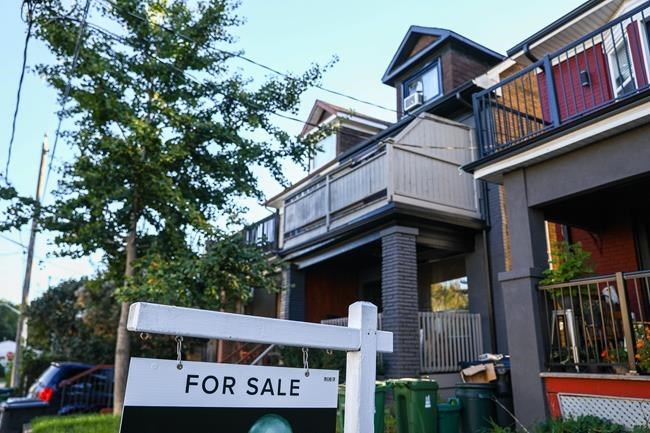OTTAWA ŌĆö sa╣·╝╩┤½├Į's housing ministers on Thursday went over plans to ease affordability issues just ahead of more hearings in a parliamentary probe of price gains and their effect on headline inflation.
Housing Minister Ahmed Hussen hosted the virtual meeting of his provincial and territorial counterparts to talk about ways to boost the supply of new units.
They were also to talk about options to discourage buyers from accumulating a large portfolio of investment properties. Research from the Bank of sa╣·╝╩┤½├Į suggests investors account for just over one-fifth of home purchases nationally.
In a tweet, Hussen said the ministers talked about how to address housing needs of Canadians across the country, adding that "a strong partnership is crucial to ensuring no one is left behind."
Home prices rose consistently last year in an environment of low mortgage rates and consumer demand for larger spaces that outstripped supply.
Statistics sa╣·╝╩┤½├Į reported Wednesday that homeowner replacement costs, which most closely match new home prices, were up 13.6 per cent year-over-year in December, continuing a streak of double-digit increases that began in May.
The measure was a key driver of the annual inflation rate in December, which hit a 30-year high.
The Canadian Real Estate Association reported that the national average home price hit $713,500 in December, up almost 18 per cent from the same month one year earlier.
The differing rates of price change between the association and Statistics sa╣·╝╩┤½├Į has opposition MPs wondering if the data from the statistics office accurately captures the impact of housing inflation.
Statistics sa╣·╝╩┤½├Į looks at a home as an asset and measures the cost to replace and use a house, including mortgage interest, property taxes, insurance and maintenance.┬Ā
Other countries take different approaches.
The United States looks at a homeowner's equivalent cost if they were renting their home, which is less sensitive to housing prices but would take a larger share of the basket of goods sa╣·╝╩┤½├Į uses to calculate inflation.┬Ā
Australia and New Zealand look at the purchase price. Sweden's measure looks at prices, financing costs and depreciation, which can lead to volatile impacts in a consumer price index.
Conservative finance critic Pierre Poilievre thinks one of those options or another, like a separate index for changes in asset values, rather than just consumer prices, could be used to better reflect housing inflation.
Poilievre hasn't settled on one option, but promised the Tories will suggest one when the House of Commons finance committee wraps its study on inflation.
"We have got to find a way to properly account for ballooning real estate prices in the reported inflation number, or we will not be getting an accurate picture of the purchasing power of our dollar," he said.
The committee is scheduled to meet Friday and hear from the head of the federal housing agency and the superintendent of financial institutions, whose office regulates the country's banks.┬Ā
Among the witnesses the committee expects to hear from is Bank of sa╣·╝╩┤½├Į governor Tiff Macklem, but likely not until after Wednesday when the central bank is scheduled to update its inflation forecasts and make a rate announcement.
Expectations have grown that the bank will raise its key policy rate from 0.25 per cent next week given the recent inflation readings, or at least signal an earlier increase than it previously planned.┬Ā
James Laird, co-founder of Ratehub.ca, said any rate increase would likely quickly hit homeowners with variable rate mortgages by increasing their payments in February.
Deloitte sa╣·╝╩┤½├Į said in its updated economic outlook that rising mortgage rates could strain highly indebted homeowners and make it tougher for first-time buyers to enter the market, "exacerbating the housing affordability issue across sa╣·╝╩┤½├Į."
NDP housing critic Jenny Kwan said the situation requires the federal government to move quickly to expand the stock of affordable housing, and increase atax on foreign buyers to dissuade them from snapping up investment properties.
"This crisis is only going to get worse as long as the federal government continues to allow housing to be treated like the stock market," Kwan said.
This report by The Canadian Press was first published Jan. 20, 2022.
Jordan Press, The Canadian Press



